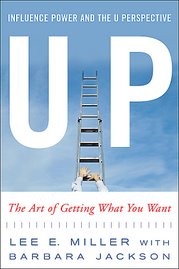 When your friends are making $71 million dollars. I was surprised to read in the Wall Street Journal that Mark McGoldrick left a prestigious position at Goldman Sachs running their " Special Situations Group" because he felt that he was working too hard and wasn't being paid enough. The salary he was not happy with, last year amounted to $70 million dollar ($200,000 a day). Most of us won't make $70 million dollar in our lifetime and would be thrilled with a hundredth of that salary. So what makes someone complain about a salary bigger than the gross national product of certain small countries? Fairness, jealousy, envy. Call it what you will but in life we measure happiness not by what we have in some absolute sense, but rather by what we have compared to the people we feel are like us.
When your friends are making $71 million dollars. I was surprised to read in the Wall Street Journal that Mark McGoldrick left a prestigious position at Goldman Sachs running their " Special Situations Group" because he felt that he was working too hard and wasn't being paid enough. The salary he was not happy with, last year amounted to $70 million dollar ($200,000 a day). Most of us won't make $70 million dollar in our lifetime and would be thrilled with a hundredth of that salary. So what makes someone complain about a salary bigger than the gross national product of certain small countries? Fairness, jealousy, envy. Call it what you will but in life we measure happiness not by what we have in some absolute sense, but rather by what we have compared to the people we feel are like us.So Mark McGoldrick was unhappy with his salary because his counterparts at hedge funds and private equity firms were making a lot more than he was. This should not have come as a surprise to me.
As I wrote in UP: Influence Power and the U Perspective-- The Art of Getting What You Want:" While money can effectively be used as a motivator, even money becomes significantly less useful as a motivator once you achieve a certain level of wealth. There is a significant body of research that shows that once personal wealth reaches a certain level additional wealth produces virtually no increase in one’s sense of happiness. Moreover, according to Richard Layard, a professor at the London School of Economics, peoples’ sense of their own wealth is subjective and is determined primarily by comparing themselves to others. Therefore when incomes rise across a nation there is no greater sense of wealth or happiness. For example, real income in Japan more than quintupled over the thirty years starting in the1950s yet researchers found no corresponding increase in how happy people felt. Even very wealthy people can feel disadvantaged when their friends are significantly wealthier than they are. Understanding that may cause you to propose a business opportunity to a very wealthy individual by focusing on some other benefit beyond just its profitability, such as by making it exclusively available to that individual or by allowing that individual to gain status by being able to offer it to his or her friends."
Understanding that we react in this way and that so do others is important to keep in mind if you are seeking to get hired, to get a raise or to gain a promotion. The fact that someone else is interested in hiring you makes you more valuable. It is not so much the fear of losing you that increases your value. Trust me, they will find someone else equally talented. It is losing you to someone else, especially someone they view as a competitor, that really drives people crazy. We all want what other's want and it is even better if we are the only one, or one of an elite few, that has it. Harness that knowledge to your advantage to move your career forward.


No comments:
Post a Comment